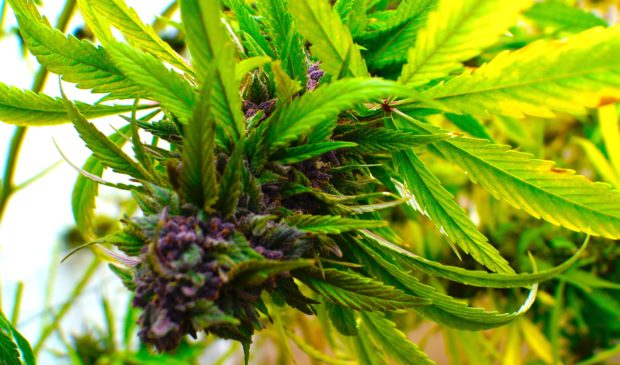Community leverages conundrum over hemp to advocate for marijuana decriminalization
Wednesday, September 4, 2019 by
Ryan Thornton Despite the technical difficulty of distinguishing marijuana from legal industrial hemp, the Austin Police Department told the City Council Judicial Committee on Tuesday that the city cannot afford to let the possession and sale of marijuana go unchecked.
However, several members of City Council and many community justice advocates question the value of spending taxpayer money on equipment and training necessary to test THC levels and continue the city’s policy of cite-and-release.
Additionally, with the majority of marijuana citations now being rejected by Travis County, Council Member Greg Casar said enforcement may already be causing more problems for individuals and the public than it solves.
“Now that it’s been made clear that the misdemeanor cases won’t even be prosecuted, it seems like an important moment to ask whether or not our police should continue the practice of giving misdemeanor marijuana-related citations/tickets or making misdemeanor marijuana arrests,” reads an online statement posted by Casar and Mayor Pro Tem Delia Garza prior to the meeting.
Assistant Police Chief Troy Gay said the department doesn’t see it that way: “We believe that if there are no enforcement efforts this would increase consumption, which would increase demand and increase supply. This could potentially increase violent offenses.”
The Texas Legislature created the current legal predicament in June when it legalized cultivation of industrial hemp while requiring local governments to continue enforcing marijuana laws.
In order to prosecute for marijuana possession, police need to prove that the substance is in fact marijuana, which looks and smells identical to hemp, but – by the state’s definition – contains concentrations of THC higher than 0.3 percent. Gay said testing for THC will require both adaptation of existing equipment and a minimum of six months to refine the new practice.
In the meantime, Gay said, the department has discontinued its “plain smell” doctrine whereby the odor of marijuana alone was used as cause for further investigation. Under the revised protocol, officers are trained to use marijuana scent “as a building block” for a search when other potentially criminal elements are present.
Several community activists rejected Gay’s association between violence and the decriminalization of low-level marijuana possession. Chris Harris countered that “there is no evidence that decriminalization of all various types – all the way up to and including legalization – leads to any increases in criminal activity of any kind, whether violence or drug use or drug sales.”
Moreover, said Latreese Cooke, the executive director and founder of MELJ Justice Center, a nonprofit serving at-risk youth and formerly incarcerated individuals, the stress and disruption caused by enforcement from either a warrant or an arrest can itself “lead to a new offense.”
Nick Hudson with the American Civil Liberties Union of Texas similarly urged the city not to put more resources into enforcement of marijuana laws. Recidivism, Hudson said, increases noticeably after jail stays as short as 24 hours. “If more people are incarcerated for marijuana possession because we spent the money on testing, there will be more families and communities in Austin that are less stable.”
At least in the short term, Gay said the department plans to maintain current practice, neither increasing nor decreasing enforcement of marijuana laws. In the future, he said, the department would be open to adjusting its policies if evidence undermined the presumed connection between crime and decriminalization.
“I think we are a progressive department that is always looking to do the best for our community, but ultimately we want our community to be safe,” Gay said.
“I understand, from your perspective, the public safety aspect,” Garza said. “But I hope that if data comes to us that shows us that (decriminalization) is in fact not creating any more violent crime, then we can revisit this.”
Regardless of whether or not the city ultimately continues to cite individuals for possession of small amounts of marijuana, Gay said the THC testing equipment – a liquid chromatograph mass spectrometer – will also be useful for higher-level felony cases where it is critical to test for THC concentrations.
The Austin Monitor’s work is made possible by donations from the community. Though our reporting covers donors from time to time, we are careful to keep business and editorial efforts separate while maintaining transparency. A complete list of donors is available here, and our code of ethics is explained here.
You're a community leader
And we’re honored you look to us for serious, in-depth news. You know a strong community needs local and dedicated watchdog reporting. We’re here for you and that won’t change. Now will you take the powerful next step and support our nonprofit news organization?









